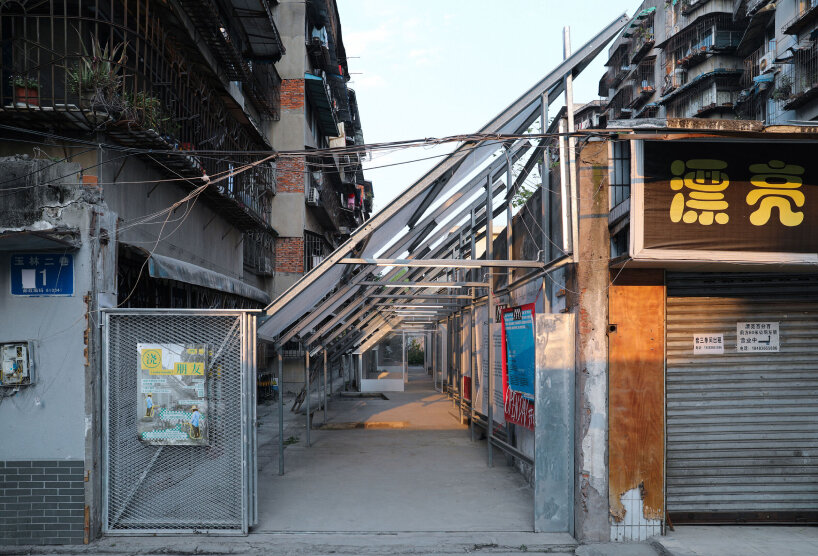In a remarkable display of urban revitalization, YIIIE Architects has transformed an abandoned bicycle shed in China’s Yulin 2nd Alley into a vibrant community recycling space. The project, dubbed the Community Art Creative Project (CACP), combines modular light steel construction, terraced green roofs, and locally sourced materials to create a thriving hub of community activity.
Situated in a dense urban center marked by partially demolished red-brick buildings, the site serves as a meeting point for low-income groups, migrants, minorities, and indigenous residents. Once a neglected urban landmark, the space has been revitalized through an interdisciplinary approach blending architecture, design, sociology, and art.
The design features rotated units and roof plantings, creating zigzag boundaries and sawtooth gaps that bring in more greenery and enhance public orientation. The exposed structure supports ongoing modifications, while the planted roof serves as a community garden, providing cooling benefits and scenic views.
Transparent polycarbonate panels and a lightweight galvanized steel structure maximize natural lighting, creating a soft and airy aesthetic. The adaptable modular units allow for participatory construction and ongoing spatial updates.
Within just seven days, the CACP team, 30 volunteers, and local residents collaboratively assembled the main structure. The revitalized space now serves as a venue for workshops, meetings, and exhibitions, connecting local stakeholders and fostering community resilience.
Future plans include integrating commercial operations, such as florist shops, alongside public activities, creating a balance between community use and business opportunities. CACP aims to extend this model to other aging courtyards, inspiring further dialogue on the role of community commerce in preserving local culture.
Image Courtesy: Designboom





